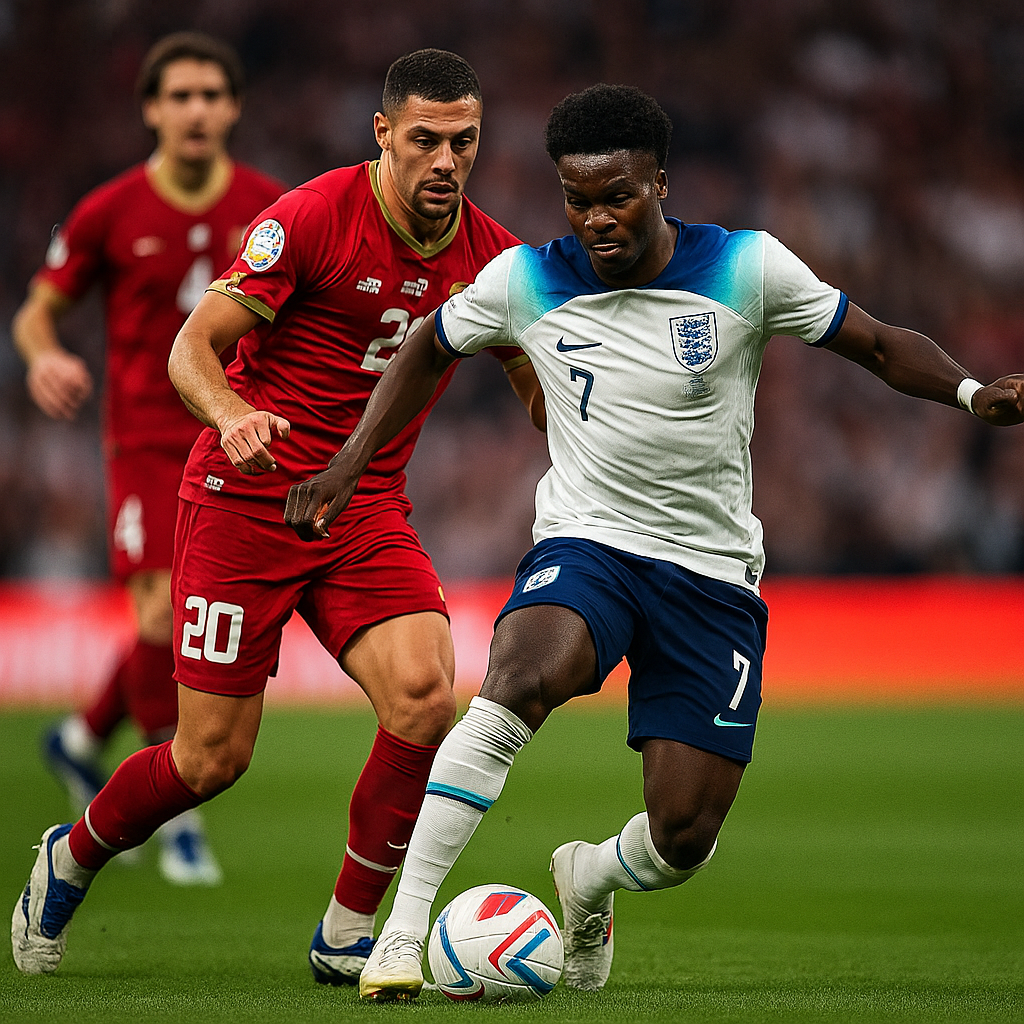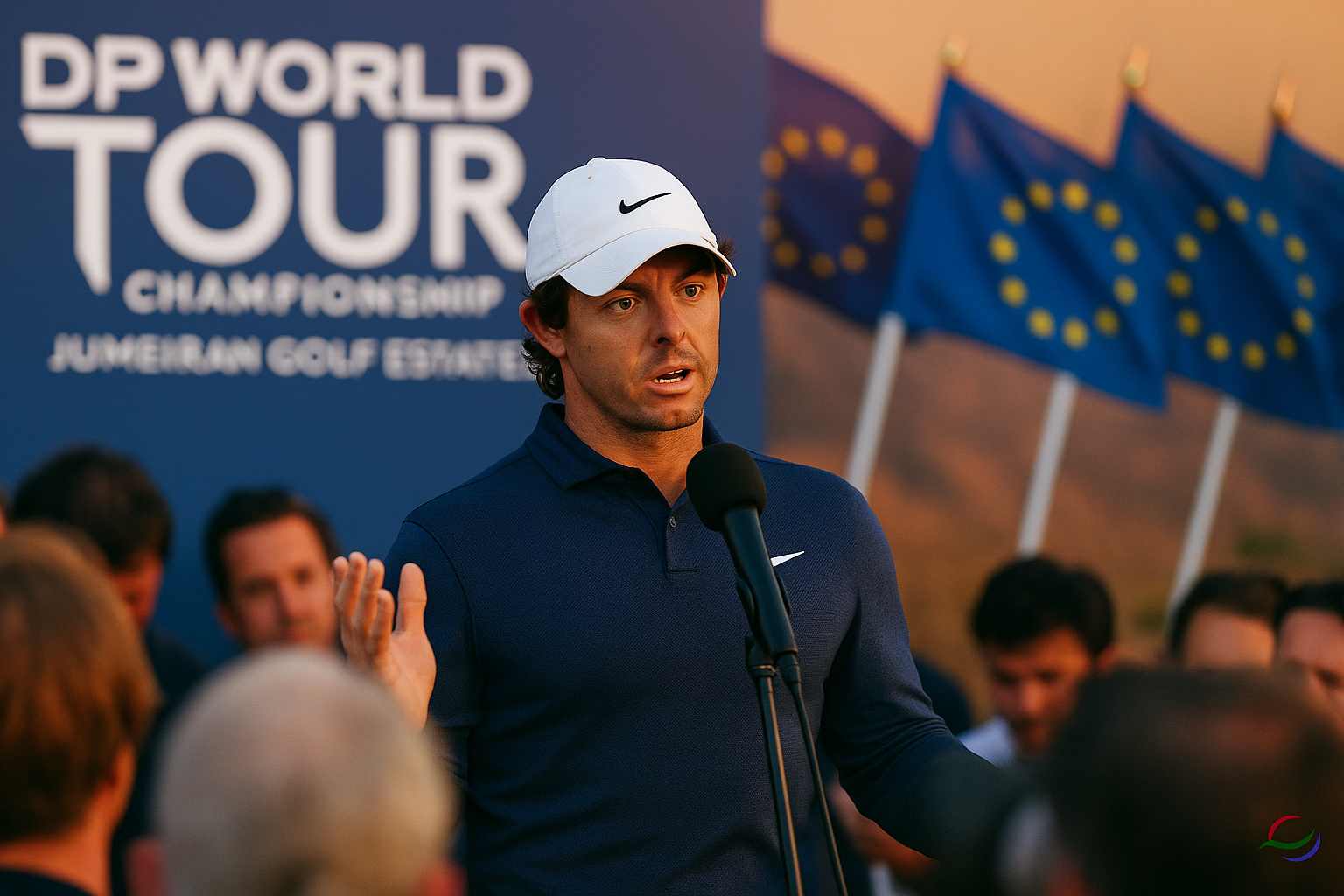Guardiola new era is no longer a slogan whispered around the Etihad—after 1,000 games in the dugout and a statement 3–0 win over Liverpool, it feels like the thesis of Pep Guardiola’s next chapter. On a night built for big narratives, Manchester City swept aside the champions with the clarity and conviction of a side that has rediscovered its rhythm, its hunger, and its bite. Erling Haaland thumped in the opener, Nico González struck with a deflected drive, and Jérémy Doku curled home a gorgeous third to seal a landmark victory for a manager who has turned the act of rebuilding into an art form. Reuters+2The Guardian+2
Contents
- The milestone that reframed a season
- City 3–0 Liverpool: the game that announced a Guardiola new era
- Tactics, tempo, and the return of City’s unpredictability
- From fatigue to freshness: the energy metrics and why they matter
- Rebuild 3.0: personnel shifts, role redefinitions, and a coach who adapts
- Haaland the finisher, Doku the disruptor, González the metronome
- Guardiola’s motivational reset and the psychology of winning
- The Premier League race: momentum, risks, and that thin line between brilliance and burnout
- What 1,000 games teach a serial winner
- What must still improve before May
- Verdict: Electrifying reboot—or risky mirage?
- Key match facts and context
- FAQs for quick readers
- External sources for reference
The Milestone That Reframed a Season
When a coach reaches 1,000 professional matches, the number is more than a round figure; it’s a ledger of reinventions. Guardiola’s 1,000th game became a prism through which to view both his longevity and his adaptability. It arrived with the seductive symmetry of past and future: lessons learned from Barcelona and Bayern sharpening decisions made at City in real time. And it arrived with results—716 career wins at the final whistle, alongside the performance that hinted he has the appetite to chase more. The Guardian
The week leading up to the match carried an unusually reflective Guardiola; he spoke about dedication, passion, and love—intangibles that outlast tactical trends and keep a coach present amid constant pressure. He acknowledged Liverpool as a defining rival of this era, a team that has demanded his best solutions and, at times, punished any hint of complacency. The stage, therefore, was perfect: a defining opponent for a defining night. The Guardian
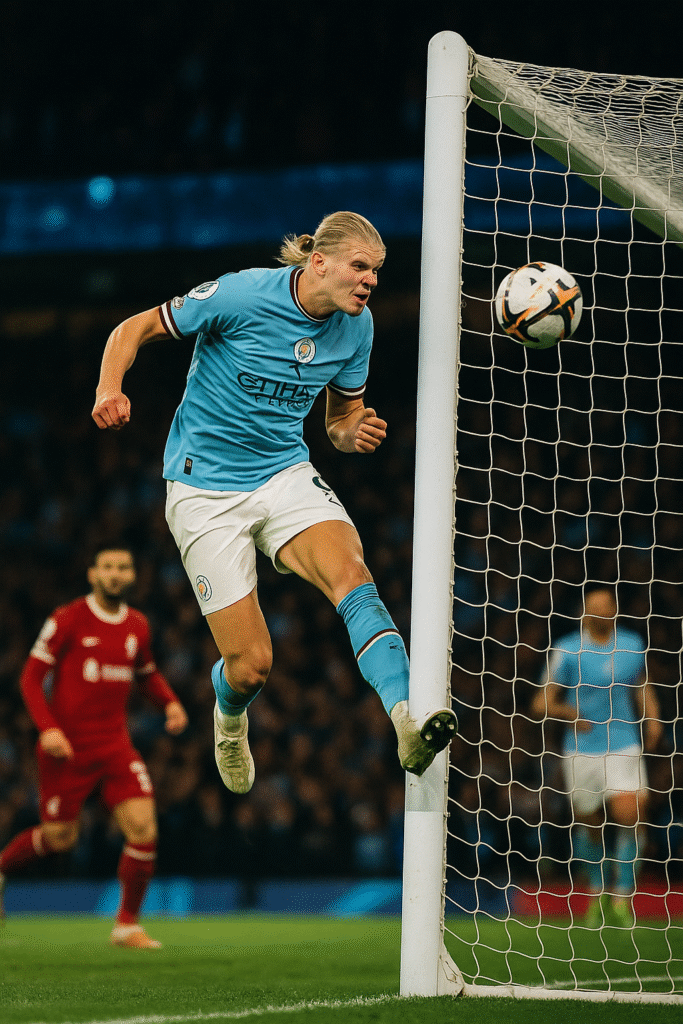
City 3–0 Liverpool: The Game That Announced a Guardiola New Era
Scoreline: Manchester City 3–0 Liverpool
Scorers: Haaland (header), González (deflected long-range), Doku (solo, curling finish)
Occasion: Guardiola’s 1,000th game as manager; City up to second, four points behind Arsenal at full time. Reuters+1
From the first whistle, City pressed with clarity and carried the ball with purpose. The opener felt as traditional as they come: wide delivery, hulking center-forward, ruthless header—simple football made inevitable by repetition and timing. Haaland has been criticized for the binary nature of his involvement (touches vs. goals), but this was the version that breaks matches open, the gravity well that bends an entire back line. Reuters
The second was about momentum. González, whose game blends regista patience with box-to-box conviction, stepped into a shooting lane and punched a drive that nicked a defender and wrong-footed the keeper. It was the reward for a team that had Liverpool pinned and was brave enough to shoot rather than circulate. Doku’s third was a flourish—pace, disguise, and a perfect curl—an exclamation mark to a night that doubled as a manifesto: possession yes, but also verticality; rhythm yes, but also rupture. The Guardian
Tactics, Tempo, and the Return of City’s Unpredictability
Guardiola’s peak City sides have always weaponized control. What Sunday underscored is how their new unpredictability enhances that control. The build-out alternated between a classic 2-3 structure and an asymmetry that pushed a fullback into midfield, changing Liverpool’s pressing pictures every other phase. Sometimes City played through the six zone; sometimes they bypassed it entirely and hit Haaland early. The tactical oscillation mattered for two reasons:
- It denied Liverpool rhythm. Every time the visitors settled on a trigger, City changed the provocation.
- It fed City’s wingers. Doku, in particular, thrived when City tempted the press to one side and switched quickly into the vacuum left behind.
Guardiola hinted recently that City had become “more unpredictable” in attack and defense, and you could see it here—different patterns, different heights, different choices of when to press and when to rest in shape. The irony is delicious: the man associated with meticulous structure has built disorder into his design, and opponents hate it because it forces them into coin-flip decisions from minute one.
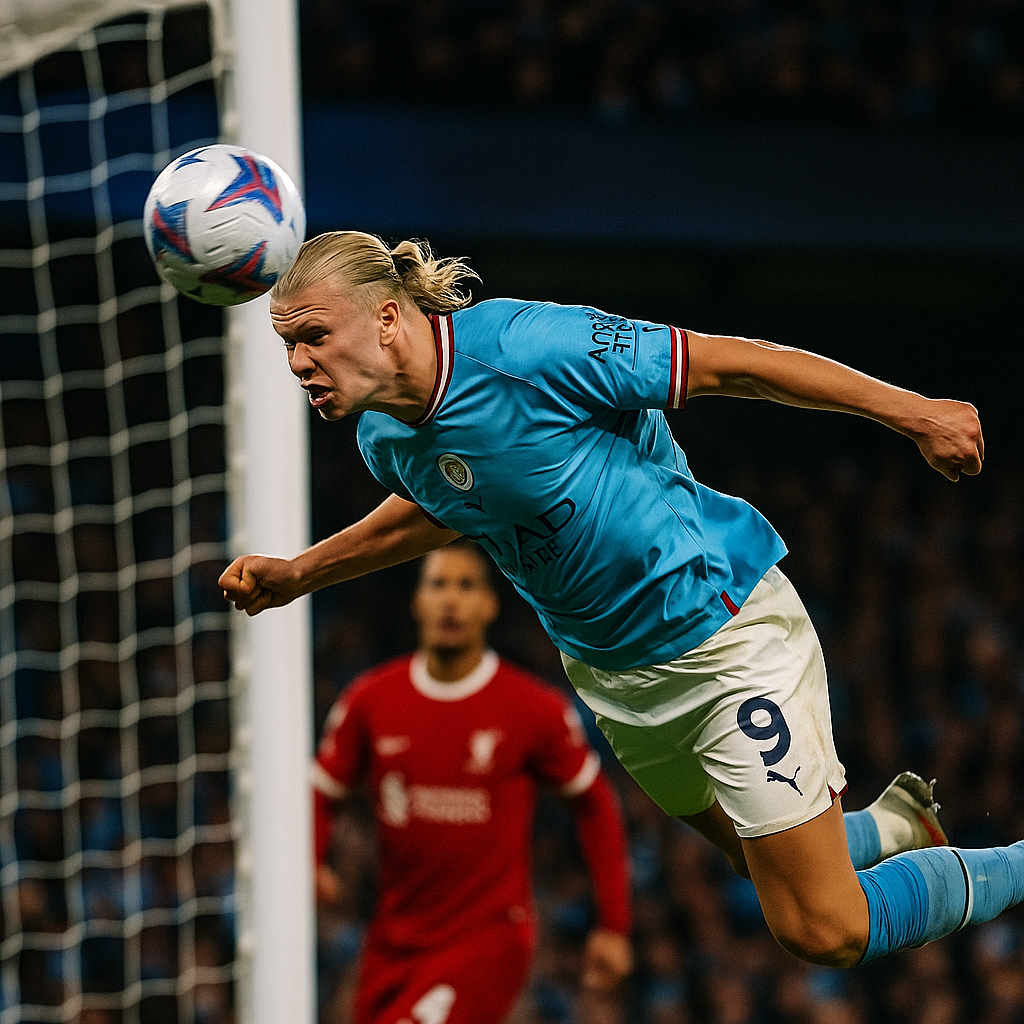
From Fatigue to Freshness: The Energy Metrics and Why They Matter
Last season’s narrative was fatigue: key injuries, relentless schedules, the emotional bill that arrives after unprecedented success. This season’s pivot is energy. The Guardiola new era is as much physiological as it is tactical. The biggest tells:
- Collective running and repeat sprints have ticked up. Independent reports this autumn flagged City among the league’s top distance-covering sides, and you can feel it in their press/re-press sequences and in how they defend transitions. (Exact league tables vary by provider, but the trend line is up.) Sofascore+1
- Tempo management is smarter. City no longer chase 90 minutes of strangulation; they pick their moments, then lock the ball to rest.
- Role clarity reduces waste. González’s positioning as the organizer/accelerant allowed others to conserve energy for decisive actions—the hallmark of well-coached teams.
The data point isn’t just “how far” a side runs but when and why. City’s distances are arriving at correct moments: to jump a pass, to close a half-space, to flood the box after a regain. That synchronization is the invisible chemistry that makes a team feel faster than it is.
Rebuild 3.0: Personnel Shifts, Role Redefinitions, and a Coach Who Adapts
Plenty of managers “rebuild” by buying, yet Guardiola’s transformations often happen via role definition—who stands where and why. The Guardiola new era has three standout rethinks:
- Center-forward primacy, without dependency. Haaland’s presence remains a magnet, but City can now win without funneling every possession through him. The first pass after a regain might target him; the next attack might ignore him entirely, dragging center-backs into decisions they cannot game-plan.
- Winger elasticity. Doku’s line-breaking dribbles stretch time and shape. The system now tolerates (even invites) his risk-taking because the rest defense is positioned to absorb counters.
- Midfield recalibration. González has been the “third rail” carrying current through the structure—press-resistant under pressure, yet progressive on the half-turn. He reads when to drop into the last line to create a numerical +1 and when to step beyond the first pressing line to flip the geometry.
Rebuilds also mean leadership refreshes. The armband matters less than the conversations between set plays: conversations about triggers, who jumps first, and who holds. City’s spine—keeper, first passers, first presser, striker—sounded and looked aligned. That is culture work as much as coaching, and Guardiola remains elite at both.
Haaland the Finisher, Doku the Disruptor, González the Metronome
Haaland’s goal had shades of his Dortmund days: a predator’s run, a defender’s blind shoulder, and a finish that erases earlier miscues. He is at his most terrifying when he misses early; it suggests a night he will not leave quietly. Meanwhile, Doku drew most of Liverpool’s emergency defending. Full-backs gave ground; midfielders dropped into their line; the box became crowded and panicky. He didn’t just score a beauty; he bent the match into shapes City could exploit again and again. González stitched it all together, topping City’s touch count and composure index in a contest that asked for both. Reuters+1
What binds them is Guardiola’s trust. He has always backed skill that can break structure—provided the team can close the exits behind it. That is the deal at City now: dribble if you can, pass if you must, and shoot if you should—because eight teammates are already thinking about the next three seconds if you lose it.
Guardiola’s Motivational Reset and the Psychology of Winning
You cannot fake joy in football; fans smell it. The smile Guardiola wore at full time was not performative. It was relief and appetite, a recognizer’s grin: we’re back to who we are. After the churn of last year—the injuries, the mental sludge, the sense that each week was a tightrope—Sunday felt like a collective exhale. The routine details shouted it: subs hitting their cues, staff on the same page, touchline messages mirrored on the pitch five seconds later.
Motivation in serial winners is a paradox. The more you win, the less novelty remains, and performance feeds on novelty. Guardiola solves that by inventing new problems to solve: a fresh build-up mechanic, a winger profile that breaks his own orthodoxy, a center-back used as a fullback used as a holding mid. The game becomes a lab again; curiosity becomes fuel.
The Premier League Race: Momentum, Risks, and the Fine Line
At full time City climbed to second, four points behind Arsenal, while Liverpool slipped into mid-table congestion. City’s run-in will be punctuated by European commitments and by opponents who have now seen the blueprint of this “unpredictable” City. That is both blessing and trap: the version we saw against Liverpool will attract game plans designed to kill transition moments and crowd Doku’s channel. City’s task is to keep adding variants so that every tweak by an opponent opens a new door somewhere else. Reuters
Risks:
- Injury management. High-tempo teams ride a knife-edge. Lose the wrong player in the wrong zone, and the re-press timings fray.
- Overreliance on individual surge. Doku’s ability to remove defenders is elite, but City must not become dependent on his duel-winning to generate high-xG looks.
- Complacency. The glow of a perfect night is deceptive. Title races are decided by Tuesdays in February.
Offsets:
- System redundancy. Multiple routes to chance creation—wide overlaps, inside-8 underlaps, direct Haaland targets, third-man runs—lower the variance.
- Set plays. City remain dangerous from restarts and, crucially, strong at defending them.
- Bench variance. Guardiola can change the type of game, not just the names in it.
What 1,000 Games Teach a Serial Winner
Guardiola’s career arc is often described in stylistic terms: positional play, five-lane occupation, third-man patterns. The deeper truth is iteration. The Guardiola new era is simply iteration with better timing—changing just enough, just in time. Across Barcelona, Bayern, and City, he has kept one constant: a non-negotiable commitment to the ball as the primary defensive tool. From there, everything else is negotiable if it extends the advantage.
1,000 games also sharpen your risk antennae. Pep knows when to throttle risk and when to spend it. Against Liverpool, he spent risk on Doku’s freedom and on vertical passes into Haaland early in possessions; he saved risk by keeping the rest defense tight and by using González to put water on any sparks in midfield. That balance is why 3–0 felt comprehensive rather than chaotic.
What Must Still Improve Before May
- Finishing the secondary chances. When the first wave doesn’t score, City must punish the broken field on the second.
- Avoiding sterile control. Even Guardiola teams can fall into pass-for-passing’s sake. The best version of City keeps the purpose cranked to 11.
- Load management. Champions are built in the margins between peak nights—nutrition, sleep, rotation, and minutes management around European travel.
If that sounds banal, it’s because titles are. Great teams become champions by doing ordinary things consistently well on ordinary days.
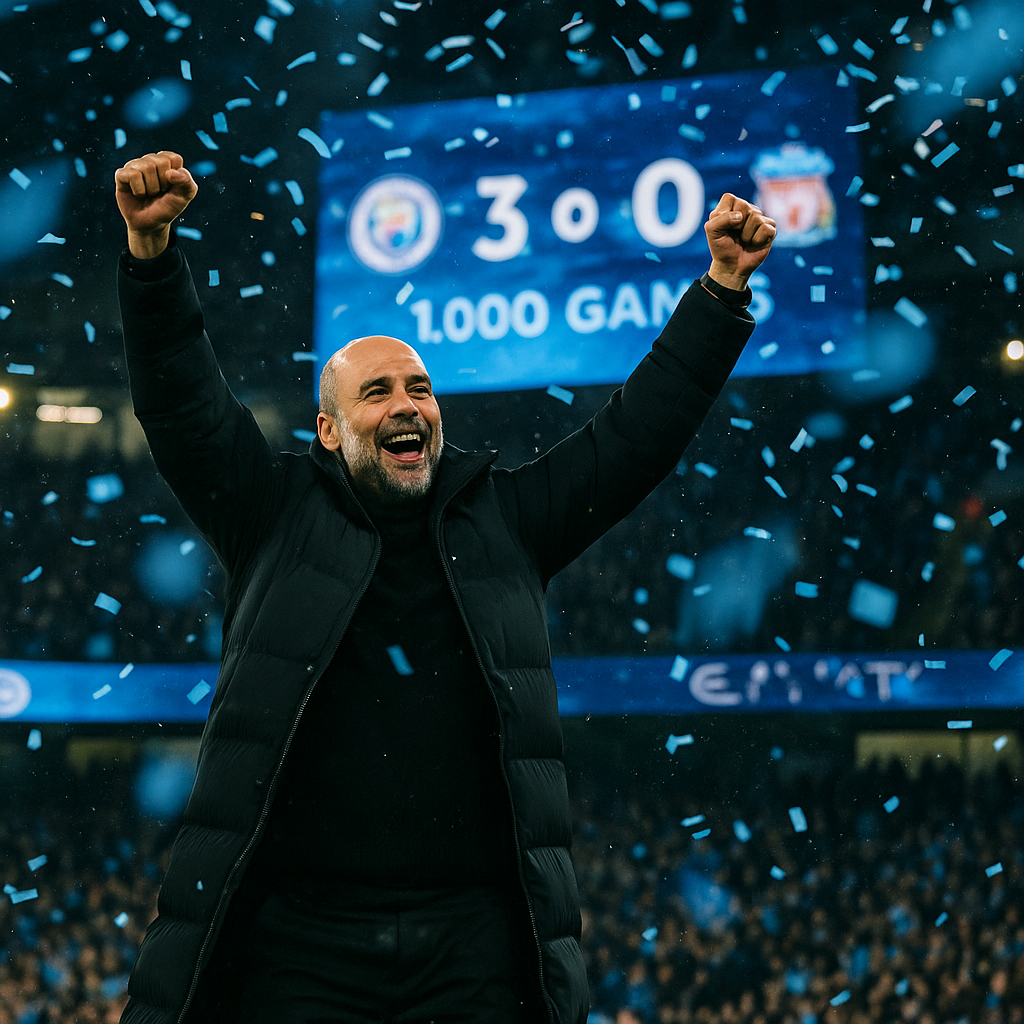
Verdict: Electrifying Reboot—or Risky Mirage?
So, is this Guardiola new era an electrifying reboot or a risky mirage? The evidence leans toward reboot. The tactical novelty is layered rather than experimental, the energy profile is climbing, and the collective behaviors look synchronized. The “mirage” scenario exists, of course: injuries or a mid-winter run of low-scoring draws could distort the table and the mood. But in the sample we just watched, City looked like themselves—only sharper, more flexible, and more purposeful.
For a manager standing at 1,000 games, the greatest compliment is that the hunger still shows. This match did more than add a win to an already extraordinary tally; it showed that Guardiola’s curiosity—his will to build a better version of City—remains intact. That is bad news for everyone else. The Guardian
Key Match Facts and Context (Quick Reference)
- Pep Guardiola’s 1,000th game as a manager.
- 716 career wins at the final whistle.
- Manchester City 3–0 Liverpool (Haaland, González, Doku).
- City up to second, four points behind Arsenal at full time; Liverpool dropped into the pack. Reuters+1
FAQs
Q: What defines the “Guardiola new era” tactically?
A: Greater unpredictability: alternating build-up shapes, early direct balls to Haaland when the press invites it, and more license for Doku-style disruptors—supported by a secure rest-defense and a metronomic organizer in González.
Q: Did City dominate physically as well as technically?
A: Yes. The press/re-press tempo was high, and multiple independent datasets this season have noted City among the league’s hardest-running sides; beyond absolute distance, their timed energy spikes were decisive. Sofascore+1
Q: Is Haaland’s role changing?
A: Not the essence—he’s still the finisher—but the team is more comfortable mixing phases: sometimes he’s the early outlet to collapse a block, sometimes a decoy for third-man runs, sometimes the last-touch scorer.
Q: Where could the plan wobble?
A: Injuries to the organizing core (six, first passers, rest-defense anchors) or an overreliance on 1v1 wins. City’s antidote is variety—more ways to play than the opponent has ways to stop.
External Sources (for reference)
- Reuters — Man City ease to 3–0 win over Liverpool as Guardiola celebrates 1,000th game in style. Reuters
- The Guardian — Guardiola thanks Doku and Manchester City for “present” of Liverpool victory. The Guardian
- The Guardian — Pep Guardiola on his 1,000th game: dedication, passion, love. The Guardian
- Associated Press — Man City crushes Liverpool 3–0 in Pep Guardiola’s 1,000th game. AP News
- Sofascore (running performance overview) — Premier League running stats (Matchday 1 snapshot). Sofascore
- The Analyst — Distance covered and intensity trends early in the season. Opta Analyst
- Official Premier League — Manchester City Statistics hub. Premier League


